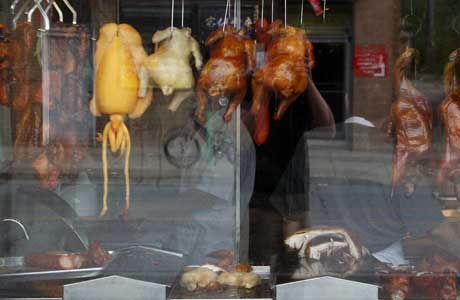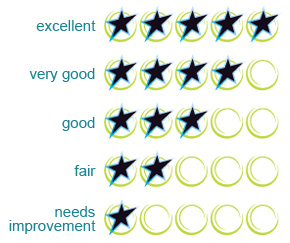The Ontario Farm Products Marketing Commission is pondering a request from Svente Lind of Sweda Farms Ltd. for a full-scale inquiry into the Egg Farmers of Ontario marketing board and province’s dominant egg-grading companies.
And in the Superior Court, L.H. Gray and Son Ltd. has filed more than 200 pages of documents as it seeks to squelch whistle-blower Norman Bourdeau who has a treasure trove of electronic documents detailing the company’s activities.
Included are thousands of e-mails among senior staff, some of them revealing that company owner William Gray instructed employees to falsify grading and to hide damning  evidence.
evidence.
The information indicates that L.H. Gray Ltd. systematically altered automatic grading equipment with the result that cracks and dirty eggs were marketed as Grade A.
The court documents indicate that Bourdeau warned that this:
– Cheated consumers who paid Grade A prices for inferior-quality eggs. Bourdreau estimates consumers were over-charged $25 to $30 million per year for a number of years.
– Violated food safety standards through the marketing of cracks and dirty eggs instead of diverting them to processors.
The court documents also indicate that L.H. Gray Ltd. denies all of the allegations of wrong-doing and is suing Bourdeau for damaging the company’s reputation. Bourdeau is countersuing.
Gray’s application for an injunction to muzzle Bourdeau is to be heard in Superior Court here Feb. 22. Until then, the documents filed by the company are open to the public.
Sweda Farms has filed an application in Superior Court in Whitby to have the electronic files Bourdeau copied from L.H. Gray Ltd., and stashed in a safety deposit box, turned over to help it pursue lawsuits against Egg Farmers of Ontario, L.H. Gray and Son Ltd. and Burnbrae Farms Ltd. There’s an estimate that the electronic files contain more than one million documents.
Gray has 40 to 42 per cent of the Ontario market and Burnbrae, controlled by Joe Hudson and his family, has even more. Gray has 30 to 35 per cent of the Canada-wide egg market, some of it through outright and partial ownership of egg-processing plants.
The Egg Farmers of Ontario marketing board examined Svente Lind’s egg-grading operations and calculated that he had a higher percentage of cracks and dirty eggs than  the provincial average. On that basis, the board claimed it was owed almost $45,000 in levies and that producers were shorted.
the provincial average. On that basis, the board claimed it was owed almost $45,000 in levies and that producers were shorted.
Sweda will now argue that the provincial averages are wrong because L.H. Gray Ltd. failed to properly report the grade of its eggs. The inference is that something similar happened at Burnbrae.
Bourdeau also alleges that Harry Pelissero, general manager of the Ontario egg board, colluded with Gray and Burnbrae to the detriment of competitors, such as Sweda, and the marketplace.
Egg board directors are also involved. The documents indicate that board chair Carolynn Griffith was paid for 8.8 per cent more Grade A eggs than her farm actually shipped to L.H. Gray and Son Ltd. Similar gaps “between actual and reported grade” were 6.8 per cent for Roger Pelissero, Harry’s brother who was recently elected a board director, Victor Slobodian, 5.88 per cent, and Murray Delouw, 4.18 per cent.
As examples, the court documents list the discrepancies for 19 producers. It’s not clear whether the producers were aware that they were being paid for more Grade A eggs than qualified.
The documents include e-mails from William Gray indicating that he kept a close watch on grading percentages, instructed staff to achieve certain percentages for Grade As and to hide evidence of the deceit involved.
One exchange between Gray and Scott Brookshaw says “I didn’t want anything in regards to the crack detector documented.”
There is an exchange of e-mails between Gray and Pelissero outlining their intentions to thwart an application for a supplementary import permit for organic eggs. Gray expresses concern that if this permit is granted, it may develop into larger-scale imports.
Pelissero’s role is to find Ontario-produced eggs to fill the permit-applicants’ needs.
This appears to be part of a pattern of collusion to thwart applications for supplementary import permits other than those sought by Gray and Burnbrae. In one case, a request for small eggs is filled with Ontario-produced medium-grade eggs falsely graded as smalls.
Sweda complained that many of the eggs from Burnbrae and Gray, supplied to thwart applications for supplementary import permits, were inferior quality. In response, Pellisero arranged to provide clean plywood to line one of Gray’s trucks and to have Gray take special care to deliver top-quality eggs to Sweda.
The documents indicate that Bourdeau alleged a conflict of interest by Mary Jean McFaul, daughter of Joe Hudson, a senior officer of Burnbrae and simultaneously a director of Egg Farmers of Ontario.
The documents include a resignation letter from board director Bryan Durst on Nov. 8, 2009, saying Pelissero has an “impulsive nature” that “makes it necessary that he be kept on a tight reign” and that board chair Griffith was quick to defend producers and supply management, but not to keep tabs on board operations.
Bourdeau has gone to the Strathroy Police, to the Ontario Farm Products Marketing Commission, to Egg Farmers of Canada and to the Canadian Egg and Poultry Processors Council in his attempts to end what he deems to be huge scandals that undermine the supply management system.
He declined to comment to a reporter.

.png) stomach flu at a corporate event catered by Druxy’s Tuesday, said Dr. Chris Mackie, one of the city’s associate medical officers of health.
stomach flu at a corporate event catered by Druxy’s Tuesday, said Dr. Chris Mackie, one of the city’s associate medical officers of health.
 is no on-going threat to public health.
is no on-going threat to public health..jpg) While kitchen staff worked at both events and some later reported be stricken with illness, it’s not clear if any of the diners attending both events — health investigators never asked to compare the lists, the Hunt Club says.
While kitchen staff worked at both events and some later reported be stricken with illness, it’s not clear if any of the diners attending both events — health investigators never asked to compare the lists, the Hunt Club says.
 County Health Unit (left, photo by Ben Nelms, The Windsor Star).
County Health Unit (left, photo by Ben Nelms, The Windsor Star). the business. It also does not represent the quality (e.g., taste, nutrition, customer service, etc.) of the food served at the premises."
the business. It also does not represent the quality (e.g., taste, nutrition, customer service, etc.) of the food served at the premises.".jpg) York, Ontario, are affected by this alert. These beef products were wrapped at the store for sale on demand and may not bear a label indicating packing date, lot code, or a Best Before date. So that’s helpful. Consumers are advised to check their home refrigerator or freezer if they have the affected beef products.
York, Ontario, are affected by this alert. These beef products were wrapped at the store for sale on demand and may not bear a label indicating packing date, lot code, or a Best Before date. So that’s helpful. Consumers are advised to check their home refrigerator or freezer if they have the affected beef products. newspaper,
newspaper,  Health Canada used to say raw sprouts should be avoided if concerned about illness, but now they are more direct. That 2005 outbreak in Ontario involving more than 648 cases of Salmonella linked to mung bean sprouts may have something to do with the newfound directness.
Health Canada used to say raw sprouts should be avoided if concerned about illness, but now they are more direct. That 2005 outbreak in Ontario involving more than 648 cases of Salmonella linked to mung bean sprouts may have something to do with the newfound directness..jpg) Dr. Vera Etches, associate medical officer of health with.Ottawa Public Health
Dr. Vera Etches, associate medical officer of health with.Ottawa Public Health Tree Golf and Fitness Club south of Owen Sound, Ont. barfed the magic night away.
Tree Golf and Fitness Club south of Owen Sound, Ont. barfed the magic night away.